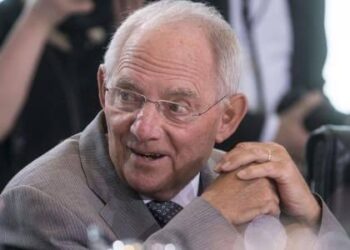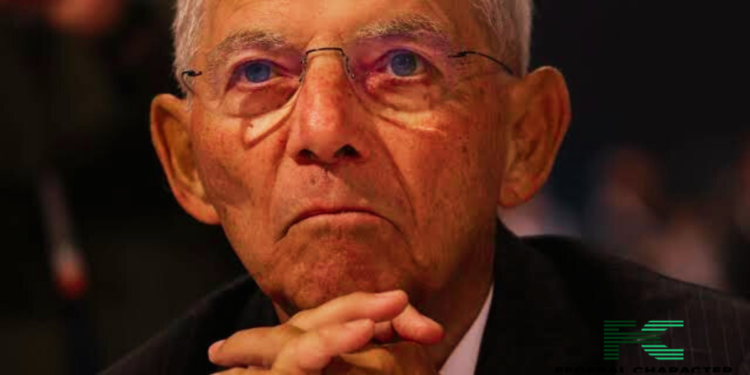Wolfgang Schaeuble, who dedicated over half a century to the German parliament, passed away at the age of 81, marking the conclusion of one of Germany’s longest political careers. During his influential tenure, he played a pivotal role in securing Germany’s position at the core of Europe.
Schaeuble, a member of the Christian Democrats (CDU), served as Chancellor Angela Merkel’s finance minister during the eurozone debt crisis. His peaceful passing on Tuesday was confirmed by a CDU spokesperson on Wednesday. A CDU member since 1965 and a parliamentarian since 1972, Schaeuble’s contributions extended from the reunification of Germany to navigating economic challenges.
Chancellor Olaf Scholz expressed mourning in a social media post, stating, “Germany has lost a sharp thinker, passionate politician, and pugnacious democrat.” CDU leader Friedrich Merz conveyed deep grief, describing Schaeuble as his “dearest friend and adviser” in politics.

Tributes poured in from France, where Finance Minister Bruno Le Maire shared his “profound sadness.” Le Maire remembered Schaeuble as a “friend, a loyal and reliable partner, and a tireless craftsman of the friendship between Germany and France.”
Schaeuble, once Merkel’s superior, played a key role in Germany’s response to the eurozone crisis, securing support for three Greek bailouts. Despite initial concerns about the open-door migrant policy, he later defended Merkel’s stance against xenophobia.
In his later years, Schaeuble witnessed the rise of the Alternative for Germany (AfD), which became a formidable opponent to the CDU. Critics accused the CDU, under Merz, of adopting AfD’s rhetoric on migration. Schaeuble, who used a wheelchair since surviving an assassination attempt in 1990, leaves behind a legacy that shaped German politics for decades.

















